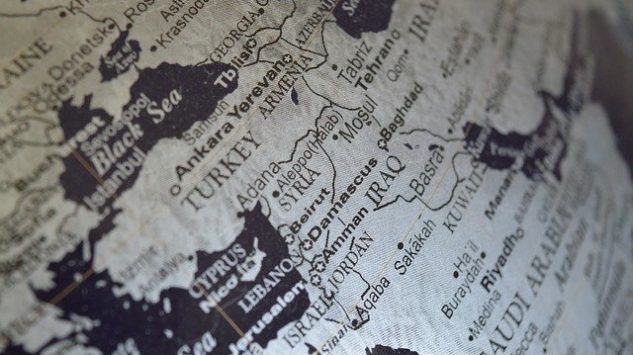Issue Briefs

Raising The Temperature In The Middle East
January 6th 2020
By Paolo von Schirach
WASHINGTON – After the unexpected airstrike that killed IRGC General Qassem Soleimani, right outside the Baghdad airport, analysts began speculating what Trump’s end game may be. In other words, is this just an ill-conceived, spur of the moment decision? Or is this targeted assassination of the master mind of all the Iran-led irregular forces operating with impunity in the Middle East part of a carefully orchestrated US “plan”?
Recalculations about America’s will are in order
I have no idea. However, I would say that this brazen attack that eliminated the most significant and most revered leader of Iran’s international mischief will probably cause some rethinking on the part of those who have come to believe that America is a hesitant giant, essentially impotent when targeted by non state actors.
Well, not so impotent, it turns out. I would speculate that Soleimani was killed in some measure because he got used to traveling from Iranian fiefdom to Iranian fiefdom, (Lebanon, Syria, Iraq, Yemen), without too much concern about his own safety. In other words, being at the head of a victorious and unchallenged unconventional military force, made Soleimani arrogant. It made him believe that he was invincible, that he could safely move around almost anywhere in the region.
Here is the thing. Going forward, the accepted narrative of a rather passive and impotent America, incapable of reacting to stealthy attacks that do not leave clear footprints, no longer applies. Not just Iran, but all America’s enemies should take all this into account.
Making things worse in the Middle East?
Sure enough, this sensational killing caused all sorts of speculations regarding possible reverberations on the volatile Middle East, already torn by conflicts and insurrections. Trump has been accused by Joe Biden, would be Democratic nominee for the presidency, of having thrown a stick of dynamite into a powder keg, or something like that.
Sure, this American action raises the temperature in the region. But the most feared consequence of a major Middle East crisis, sky rocketing oil prices, will not happen. As Holman W. Jenkins noted in a recent piece in The Wall Street Journal, the unrelated American fracking revolution, by substantially increasing US oil production, completely transformed global oil markets.
There is plenty of oil
In other words, today the world should not be overly concerned with any disruption of the flow of oil passing through the Strait of Hormuz. The difference between 10 0r 15 years ago and today is that America –until not long ago a major oil importer– is now the largest oil producer in the world. Yes, the US produces more oil than Saudi Arabia or Russia. While America still imports oil, it buys most of it from Canada, not from the Persian Gulf.
This fantastic increase of America’s oil production has had and will have significant geopolitical consequences. A very big one is to have down graded the strategic importance of the Middle East as an oil producing region, and therefore the possible negative impact of Iranian actions targeting Middle Eastern oil facilities on the world economy.
Nothing happened after Iran attack Saudi oil facilities
If you recall, a few months ago, the Iranians launched a surprise attack against major Saudi oil installations, knocking down with one shot about 50% of Saudi Arabia’s oil output. Well, what happened? Not much. Yes, oil prices went up, for a few days. But then, when the analysts were reassured that there was plenty of extra supply in global energy markets, oil prices went down again.
I am not suggesting that the Middle East has become irrelevant, far from it. What I am suggesting is that Iranian threats and possible attacks against oil are not as dangerous as they used to be in an era of tight supplies and enormous needs for imported oil on the part of the United States.
Iran is not the winning champion
Yes, after the stinging loss of Soleimani, its revered military leader, we should be prepared for something really nasty coming out of Iran. But let us not forget that Iran is not Stalin’s Soviet Union, or Nazi Germany at the height of its power.
Iran is an impoverished police state, stricken by US economic sanctions. It is a country in which an increasingly recalcitarting population, notwithstanding the obvious threats of imprisonment, torture or death, still engage in spontaneous protests against the high cost of food and other basic necessities. While we should not underestimate its resourcefulness, today’s Iran is not exactly an unbeatable champion.
The views and opinions expressed in this issue brief are those of the author.
 |
Paolo von Schirach is President of the Global Policy Institute www.globalpi.org and Chair of Political Science and International Relations at Bay Atlantic University www.bau.edu He is also the Editor of the Schirach Report www.schirachreport.com |